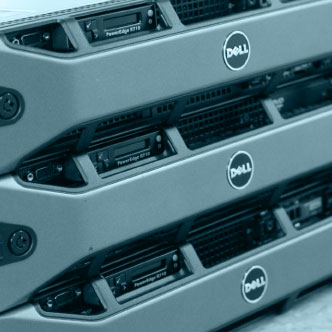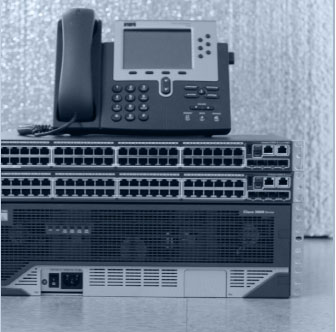 https://pixabay.com/vectors/cloud-computing-cloud-device-data-1989339/
https://pixabay.com/vectors/cloud-computing-cloud-device-data-1989339/
Saving all your important photos, videos, documents, and data on your hard drive is kind of like the 2020 version of looking someone up in the phone book and calling him from your flip phone.
Meaning:
It’s not really done so much anymore. Most people…even those that are not the world’s most tech-savvy, have made the move to the cloud.
Whether knowingly or not, if you use Netflix, Amazon, Instagram, Yahoo mail, Dropbox, or Apple devices, you are using the cloud.
“Whether data is being sent automatically (think apps that sync to the cloud) or driven by users uploading photos to social media, the end result is that it’s all there somewhere being logged and stored,” says Jérôme Segura, Senior Security Researcher at Malwarebytes.
And though it may sound as if the cloud is somewhere out in space, in actuality, it is a physical storage system made up of thousands of servers in a massive warehouse—or several hundred massive warehouses. These facilities are managed and guarded with sophisticated technology by companies that know a thing or two about data storage, like Apple, Dropbox, and Google.
Given that your stuff is now “out there,” on various platforms operated by third-party providers, it’s understandable that you have safety concerns with cloud data storage. Whether you’re an individual or part of a small business, school, or large corporation that relies on the cloud to protect your files, your concerns are definitely legitimate.
So, is secure cloud storage actually secure?
Understanding Encryption:
The data you store in the cloud is encrypted, making criminal hacking attempts nearly impossible. There is no uniform encryption process–it can vary from one cloud-storage service to another.
Who has the key?
The key can either be stored by the individual users, or by the cloud service.
Cybercriminals have managed to hack into cloud files, either by bypassing passwords or guessing security questions, which is what happened in the infamous iCloud data breach of 2014. The cloud itself was never actually breached, however, nude photos of celebrities were accessed and published online because the hackers figured out how to query iCloud services via the “Find My iPhone” API by guessing at password/user name combinations. It was a fiasco for the victims and deservedly horrible press for Apple.
Inside Jobs
Employees with access to sensitive information can wreak havoc on a business. With their privileged knowledge, they can easily manipulate sensitive cloud files and seriously disrupt operations. Human-born catastrophe on cloud systems is undeniable.
Privacy Concerns
https://unsplash.com/photos/Q59HmzK38eQ
Another concern about data breaches is not with theft, but with privacy. Even if files aren’t published or stolen, they can still be viewed. Legally, we are in new terrain here. Governments can request information stored in the cloud, and it’s up to the cloud services provider to decide whether they will allow access.
Corporations like Microsoft and Google receive tens of thousands of requests for user data are by government agencies every year. Oftentimes, these companies comply, handing over parts or all of the data requested.
“Some people argue that they have nothing to hide, that they’re not doing anything wrong, and couldn’t care less if their private information is accessed, especially if it helps in the effort to track down terrorists,” says Segura. “While there is no doubt that ready access to data is an invaluable asset for intelligence agencies, it is really important to remember that each individual has a fundamental right to privacy.”
All that being said:
The cloud is a much better home for your files than your hard drive for two reasons:
- Safety
Not only is the data encrypted and guarded, but it is also further protected by AI technology. According to an article in Tech-Wales, “The use of Artificial Intelligence in security is one of the by-products of the cloud era and it gives the cloud a step forward in detecting and eliminating vulnerabilities prematurely.”
Additionally, when your data is stored in reliable cloud services like Google, Microsoft, and Amazon, there is the backup plan of redundancy. The service will store at least three copies of each piece of data, all in different places. The likelihood of redundant copies disappearing at exactly the same moment is nearly impossible.
Your hard drive is much more vulnerable because the level of sophistication is hard to compare to cloud technology. Unfortunately, if your hard disk fails due to a power surge, faulty manufacturing, corrupt file, or you dropped it on its head you could lose hundreds of gigabytes of documents, audio, and video.
And then there is nasty malware. Undeniably the number-one reason your data is much more vulnerable in local storage vs. cloud storage. Your computer can become infected by any of these means:
● Opening attachments or links from unknown or spoofed emails
● Downloading software from malicious sites
● Online Ads
● Social media
● Unpatched software
- Convenience
Unless you’re lugging your computer and external drives with you wherever you go, local storage can be quite inconvenient If you’re in a meeting and you need to access your data, you’re probably out of luck. Information stored in the cloud is instantly accessible and can mean traveling much lighter.
Regardless of the data storage method you choose, you must make sure you are taking steps to protect your data from loss, damage, or theft, including:
- 2-Factor Authentication on your iCloud account
- Step up your password game. No pet passwords! No birthdays!! And by all means, make use of a password manager that securely manages all your passwords in one place. We like Lastpass because it is easy to use, has a strong password generator, and it does things automatically, saving you a lot of headaches.
- Browse smarter. If you’re accessing your Google docs or iCloud from a public computer, log the f. out!
Don’t fear the cloud. If you take the proper precautions, cloud data storage can simplify your life, lighten your load, and save you a lot of unnecessary stress.









